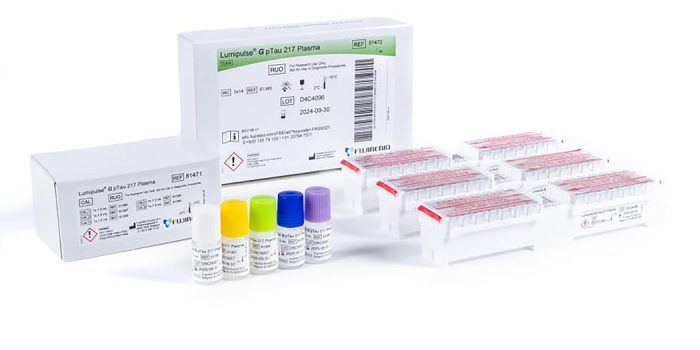The test may make it easier to identify whether people with memory and thinking problems have Alzheimer’s or not.
A blood test that can help diagnose Alzheimer’s disease has received clearance from the Food and Drug Administration. This is a step toward a goal of scientists and doctors to one day be able to diagnose a confounding illness with the prick of a finger. But there is still a long way to go.
Here is what to know:
What is the test, and how should it be used?
The test, manufactured by Fujirebio Diagnostics,is intended to be used only by specialists in Alzheimer’s, the F.D.A. said. Its mouthful of a name — Lumipulse G pTau217/ß-Amyloid 1-42 Plasma Ratio — describes what the test measures: levels of two proteins, amyloid and tau, that are hallmarks of Alzheimer’s disease.
In people who develop Alzheimer’s, amyloid begins to accumulate and form plaques in the brain more than 20 years before any symptoms of cognitive impairment. Tau accumulates later, forming tangles in the brain, and is much more closely correlated with cognitive decline.
Can people who don’t have memory problems take the blood test?
No. The F.D.A., and Alzheimer’s experts, emphasized that the blood test should be given only to people who are already experiencing cognitive decline and are ages 55 and older. Moreover, it should not be used on its own to diagnose or to rule out Alzheimer’s.
“Other clinical evaluations or additional tests should be used for determining treatment options,” the F.D.A. said in a statement, adding that “the results must be interpreted in conjunction with other patient clinical information.”
The current gold standard for diagnosing Alzheimer’s still involves either imaging using PET scans, which are expensive, or spinal taps, which are invasive. The blood test can help flag the presence of the Alzheimer’s-related proteins, and doctors might then order confirmatory testing with one of the other methods.













